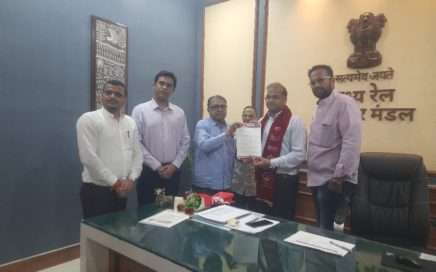The UPSC interview is no ordinary test. It is the final, nerve-wracking hurdle that can skyrocket your rank or shatter your dreams of becoming an IAS. Carrying a total of 275 marks in the overall examination process, cracking the UPSC IAS Interview is like a battleground, where your knowledge, wit, and personality are put to the ultimate test.
Imagine facing a panel of experts, ready to probe your mind from every angle. This isn’t just about knowing facts; it’s about showing how you think, how you solve problems, and how well you can hold your own person. This is why if you are looking for ways on how to crack the UPSC IAS Interview, smart preparation is your best bet!
From the insights of toppers who’ve aced it, we’ve put together a practical guide to crack the IAS Interview in your first attempt. We’ll break down IAS Preparation for Interview into how to know yourself better, master your subjects, ace mock interviews, and build that strong confidence to help you tackle the UPSC interview head-on.
Let us dive in!
What is the UPSC IAS Interview All About?
The UPSC IAS Interview is the last and final stage of the UPSC Civil Services recruitment process. It carries a total of 275 marks and is conducted in the form of a verbal face to face test wherein the candidate is interviewed by a panel of interviewers for around 30 minutes. The interview is conducted as a Personality Test to assess the suitability of the candidate for a career in civil service by judging their communication skills, mental calibre, critical thinking, intellectual curiosity and overall personality. Through a series of personal as well as academic questions, the interview panel analyzes the mental alertness, critical powers of assimilation, clarity of thought, intellectual depth and the ability of the candidate to interact with the panel.
How to Crack the UPSC IAS Interview in First Attempt?
Cracking the UPSC IAS Interview requires three things – knowledge, personality and presence of mind! As a UPSC aspirant, you need to first understand the Interview dynamics in order to navigate your way through this challenging part of the examination process. The Interview will assess your ability and aptitude for governance by testing your knowledge, communication, personality and mindset.
The following are some actionable topper recommended strategies to ace the IAS interview –
Do Not Wait Until You Clear the IAS Mains!
As a UPSC aspirant, you should not be waiting until the UPSC Mains result to start preparing for the interview. The UPSC interview is highly unpredictable and one needs to utilize every available day to prepare thoroughly. It is important to start polishing communication skills, learn more about one’s biodata, optional subjects, UPSC editorials and current affairs right after the Mains exam so that there is sufficient time to practice and identify areas of improvement.
Build Situational Thinking + Problem Solving Skills
The UPSC interview tests a candidate’s mental agility and ability to think on their feet. It is important to devote time everyday practicing responding to hypothetical situational questions that require logical thinking and decision making on the spot. Go for regular mock interviews to help boost confidence in articulating solutions to issues drawing from real-life examples in a calm and composed manner.
Be Well Informed About Your Listed Hobbies
While mentioning hobbies in the DAF form is common, UPSC aspirants should spend time genuinely pursuing them and developing in-depth knowledge about their hobbies. This prepares one to discuss listed hobbies passionately and provide interesting details about them when asked, instead of being caught off-guard. Hobbies also offer cues about personality.
Be Honest & Clear
UPSC interviewers can identify lies and confusing responses. You must answer questions truthfully and get to the point without beating around the bush. Long-winded explanations waste time and clarity is key to leaving a lasting impression on the panel. The Interviewers are more likely to appreciate honesty about strengths and areas of improvement.
Prepare Answers About Yourself, Your City & State
Self-evaluation and researching extensively about background allows candidates to respond comfortably and at length when asked to introduce themselves or provide information sought about their hometown and state. As an aspirant, prepare and practice impactful IAS Interview Questions about yourself, your district, city and state. It will reflect your familiarity and suitability for administrative roles requiring local knowledge.
Work on Your Confidence & Communication Skills
With sufficient practice, mock interviews and feedback, even average students can boost their self-assurance and ability to communicate effectively during the interview. Work on developing clear speech, appropriate tone, positive body language and eye contact. These personal attributes will create a competent first impression.
All in all, it is crucial for aspirants to prepare methodically and approach the interview with focus and confidence to crack their way through it. While the interview format is informal, the panel’s questions will rigorously test a candidate’s knowledge, comprehension, problem-solving and communication abilities.


















